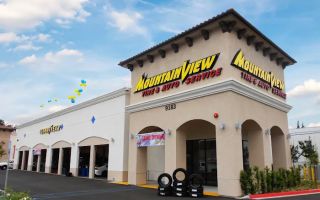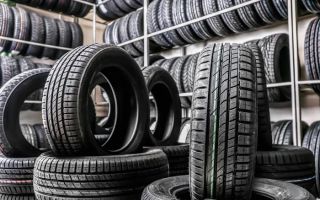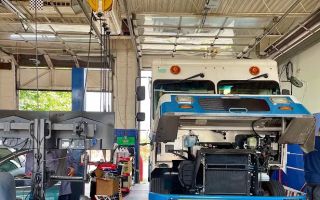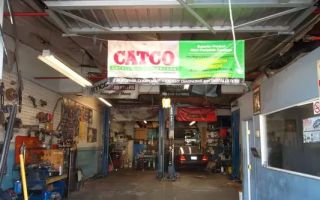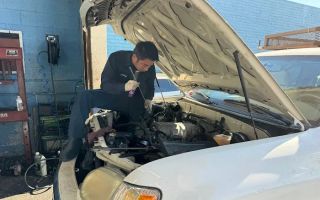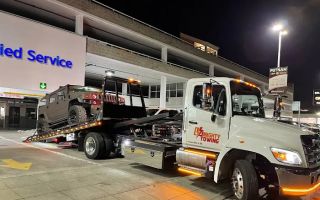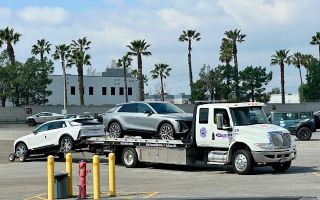How to Prepare Your Vehicle for Trailer Towing
- Understanding Towing Requirements
- Essential Vehicle Checks Before Towing
- How to Prepare Your Trailer
- Tips for Safe Trailer Towing
- Troubleshooting Common Towing Issues
- When to Seek Professional Towing Assistance
Understanding Towing Requirements
Before heading out on a towing adventure, it’s important to understand your vehicle’s towing capacity. This refers to the maximum weight your vehicle can safely pull without risking damage to the engine, transmission, or brakes. Knowing your towing capacity will help you avoid overloading your vehicle and ensure a safe and smooth journey.
Each vehicle has a different towing capacity based on factors such as engine size, frame, and overall design. The towing capacity of a vehicle can often be found in the owner’s manual, on a sticker inside the driver’s door, or through the manufacturer’s website. It's crucial to never exceed the recommended towing weight as doing so can lead to overheating, brake failure, or even accidents.
In my personal experience, understanding the towing requirements has been a game-changer for towing safely. I once attempted to tow a heavier load than my truck’s capacity, and I immediately noticed the engine struggling and the transmission feeling strained. Since then, I’ve always double-checked the towing capacity before hitting the road.
Essential Vehicle Checks Before Towing
Properly preparing your vehicle for towing is crucial to avoid complications on the road. Here are a few essential checks to ensure everything is ready:
- Check the Battery: Ensure your vehicle’s battery is fully charged and in good working condition. A weak battery could cause issues during the towing process.
- Inspect the Brakes: The brakes are critical when towing. Ensure your vehicle’s brakes are in optimal condition to handle the additional weight. If your brakes feel soft or unresponsive, have them checked immediately.
- Inspect the Tires: Check the condition of your vehicle’s tires to ensure they are properly inflated and free of any visible damage. Proper tire pressure is essential for safe towing.
- Verify Fluid Levels: Before towing, check your vehicle’s engine oil, coolant, and transmission fluid. Low fluid levels can cause overheating and transmission problems during towing.
By doing these simple checks, you can avoid potential road hazards and make sure your vehicle is ready to handle the weight of the trailer. It only takes a few extra minutes to check these, but it can save you from significant headaches down the road.
How to Prepare Your Trailer
When preparing your trailer for towing, there are a few key things to check to ensure everything is properly secured and functioning. Here’s a step-by-step guide:
- Inspect the Tires: Just like your vehicle’s tires, ensure your trailer’s tires are properly inflated and in good condition. A blowout on the trailer can be disastrous, especially on long drives.
- Check the Hitch: Make sure the hitch is securely attached to the trailer and vehicle. The ball mount, pin, and coupler should be in place and securely locked to prevent any accidents while on the road.
- Test the Lights: Ensure the trailer’s brake lights, turn signals, and running lights are all functioning properly. If these lights don’t work, you risk getting pulled over by law enforcement or, worse, being involved in an accident.
- Load Distribution: Properly distribute the weight on the trailer. The load should be evenly balanced, with about 60% of the weight at the front of the trailer. Improper loading can cause instability and make towing dangerous.
I once encountered a situation where my trailer’s lights weren’t functioning properly, and it caused a significant delay. Since then, I make sure to inspect the trailer lights thoroughly before any trip. Ensuring everything is in working order is vital for safety and compliance with traffic laws.
Tips for Safe Trailer Towing
Towing a trailer can be challenging, but with the right precautions, it can be done safely. Here are some tips to help make your towing experience smoother:
- Drive Slower: When towing a trailer, it’s important to drive slower than usual to ensure you have better control of the vehicle. This is especially important when taking sharp turns or driving downhill.
- Leave Extra Space: With a trailer in tow, your vehicle needs more space to stop. Always leave plenty of room between your vehicle and the car ahead, and avoid tailgating.
- Use Extended Mirrors: If your trailer extends beyond your vehicle, install extended mirrors for better visibility when changing lanes and turning.
- Check the Weather: Bad weather can significantly affect towing, especially in windy or rainy conditions. Always check the weather forecast and avoid towing in poor conditions if possible.
These tips have made my towing experiences much safer and more comfortable. They are simple but essential steps for ensuring a safe journey when towing a trailer.
Troubleshooting Common Towing Issues
Despite the best preparations, towing can sometimes lead to unforeseen issues. Here are some common problems that can arise and how to troubleshoot them:
- Trailer Sway: If the trailer starts to sway, slow down and gently steer to regain control. You might also want to install a sway control device to minimize the risk of swaying.
- Overheating: Overheating can occur if your vehicle’s engine or transmission is overworked. Ensure that your cooling system is functioning properly and take breaks if necessary to let the engine cool down.
- Loss of Brake Function: If you notice that the trailer’s brakes are not functioning properly, stop and check the electrical connections. A disconnected or faulty connection can cause the brakes to stop working.
I’ve faced these challenges on the road, and each time, I was able to resolve the issue by remaining calm, following these troubleshooting steps, and seeking professional help when necessary.
When to Seek Professional Towing Assistance
While DIY towing is possible with proper preparation, there are situations where calling for professional towing assistance is the best choice. If you encounter any of the following situations, it’s best to contact a towing service:
- If the trailer or vehicle has a mechanical failure that cannot be fixed on-site.
- If you're unable to safely manage the towing process due to weather or road conditions.
- If you’re towing a large or heavy trailer that exceeds your vehicle’s capacity.
In these cases, professional towing services can provide the expertise and equipment necessary to handle the situation safely. Rescue & Towing offers reliable towing services and roadside assistance to ensure that your towing experience is smooth and hassle-free. You can reach them at Rescue & Towing for all your towing needs.

